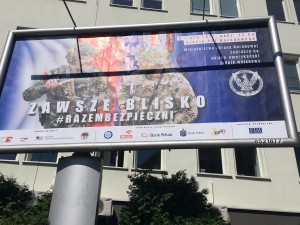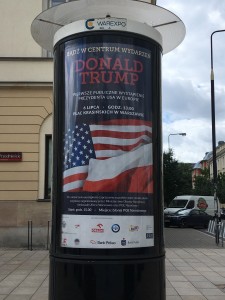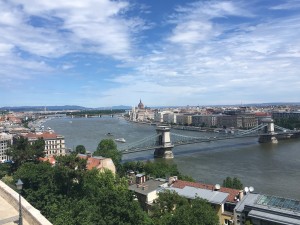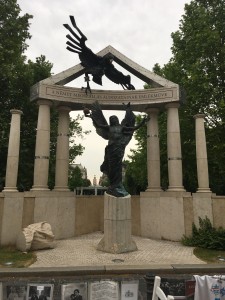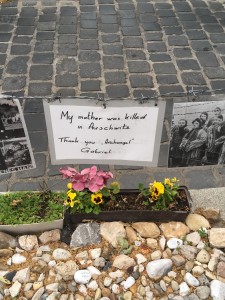Hello again,
I’m writing now, a month after my original post, from Warsaw, Poland, where I planned to spend the month of July. Long story short, things have not gone to plan, and my research has now taken me back to Budapest. The details of my troubles getting access to the archives would only be interesting for those sad and lonely souls* who enjoy discussions about Eastern European bureaucracy, so I’ll stay away from that as a topic.
*I am one of those sad and lonely souls who enjoy such discussions myself.
Instead, I’ll write about Trump’s visit to Poland a few days ago, which I observed first hand with a lot of interest. For transparency’s sake, I think it’s important that I say that I was part of the anti-Trump demonstration in Warsaw on the day of his speech. Poland has been one of the most pro-American countries in the world over the last century. The modern Polish state’s birth out of the ruins of European empire after World War One is tied to U.S. President Woodrow Wilson’s ideas about the right to national self-determination. Since then, Poland suffered under Nazi and Soviet occupation during World War Two, and experienced the worst that being in the Soviet Union’s Cold War sphere of influence had to offer. Even the best efforts of communist propaganda could not sway public opinion away from the US. Since the Cold War, and especially after Poland’s admission into NATO, US military presence in Poland has been a pillar of stability — the perceived threat presented by Russia makes Poland an extremely welcoming place for American troops.
“Always Close #safertogether”
Even so, the amount of support for Trump was surprising. On the days around Trump’s visit, I saw more Make America Great Again hats than I ever would have thought, and I saw multiple displays of the confederate flag. Given Trump’s history of shying away from strong statements about his commitment to NATO and how flippantly he has treated Russia (Poland is strongly anti-Russia), one would think that there might be some worry about Trump in Poland, but this was not the case.
I think this is an indication that the the main phenomenon the democracies of the world have to deal with right now is understanding and responding to the prevalence of ethnic nationalism among their constituents. Decrying ethnic nationalism as simply “racist” and not engaging with the difference in ideology, is, I think, useless. For a Polish ethnic nationalists such as those in PiS, the current ruling party, the Polish nation is defined by Catholicism and a national historical narrative that highlights only the times of Polish victory or heroic martyrdom. There’s nothing political about it.
I reckon Trumpism to be very similar. Americanism is not understood as being defined in political terms, but rather in a mercantilist, hard power-based framework. Trump has no need for soft power, which the US has historically used to promote democracy around the world, or at least pay heavy lip service to it. Enemies such as fascists, communists were defined by political terms. With Trump, the US’s enemies are not those who undo democracy such as Erdogan or Putin, but those who are viewed as living fundamentally different lives than the West. Trump and PiS share this worldview, and therefore, share a disregard for a democratic processes when their societies face existential threats. The Confederate flags and general support for Trump in Poland, then, is something beyond support for Trump himself, but rather, an celebration of alignment in world views. For a country with history of foreign control, both at the ideological and hard power level such as Poland, having the world order’s leading country support the country’s worldview is tremendously powerful. I think it’s safe to say the we’re currently in the midst of a global upswing of confidence in the idea of ethnic nationalism, and this plays right into the hands of Trumpists, while dealing true liberal democratic around the world a strong blow.
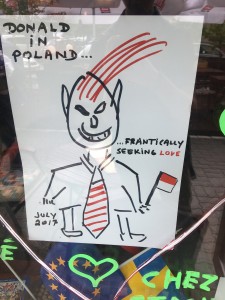
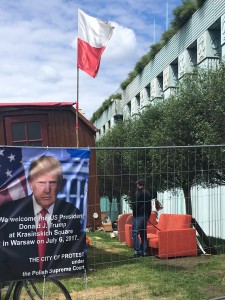
These are just reflections and thoughts from a hostel common room; there’s a reason I’m not on the editorial board of any prominent news sources. Feel free to chime in with your own thoughts.

